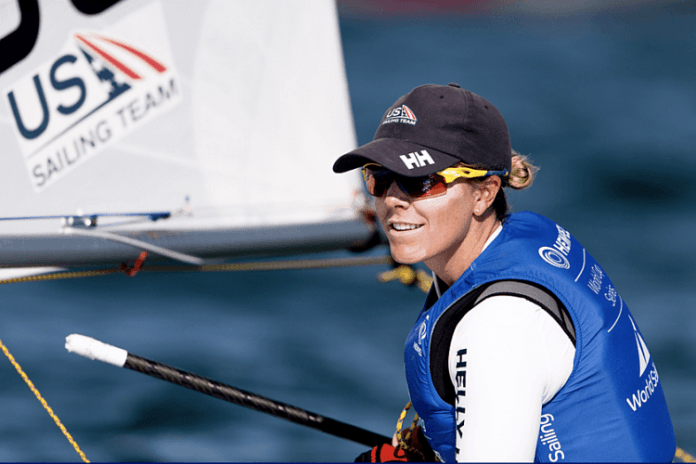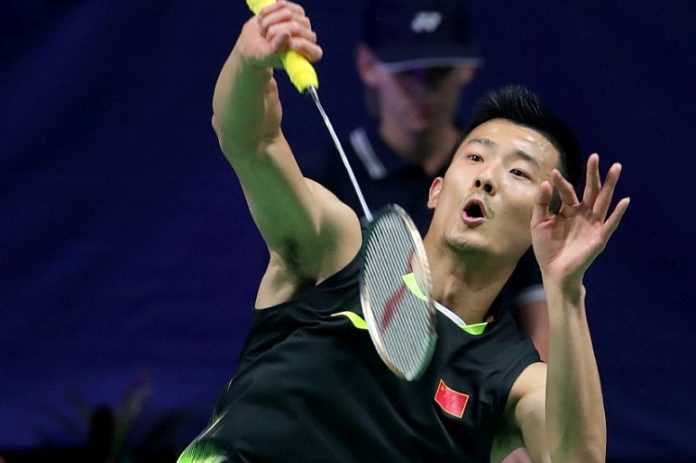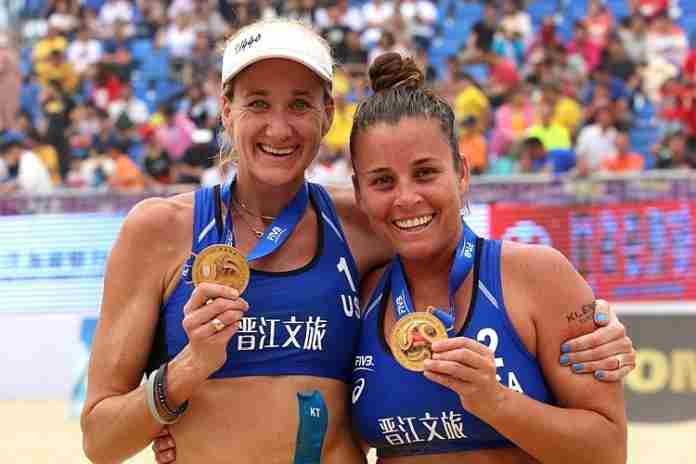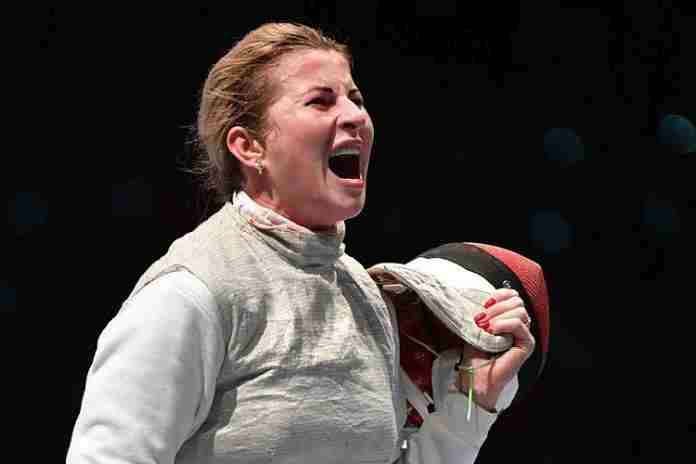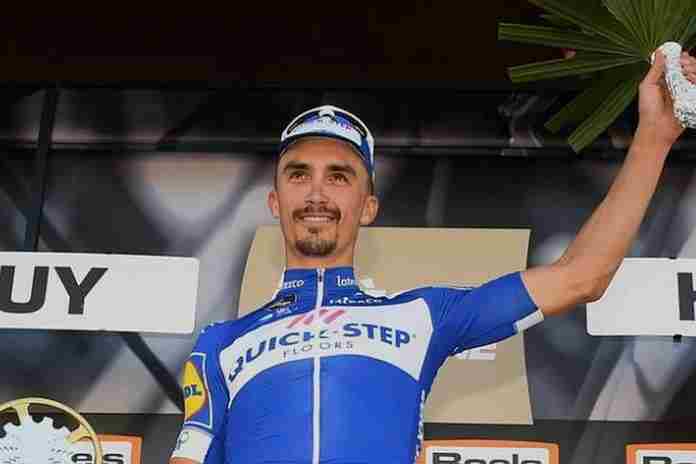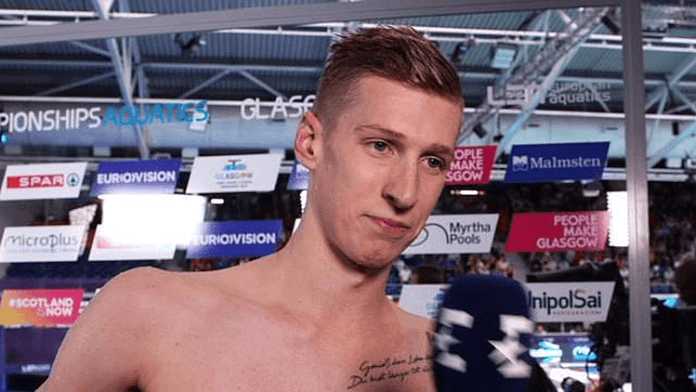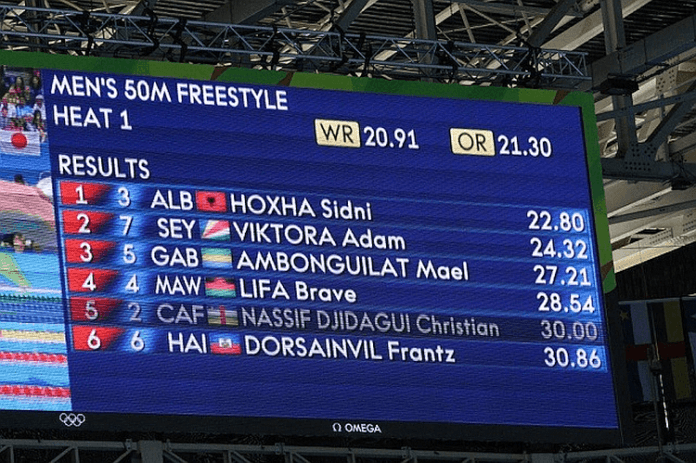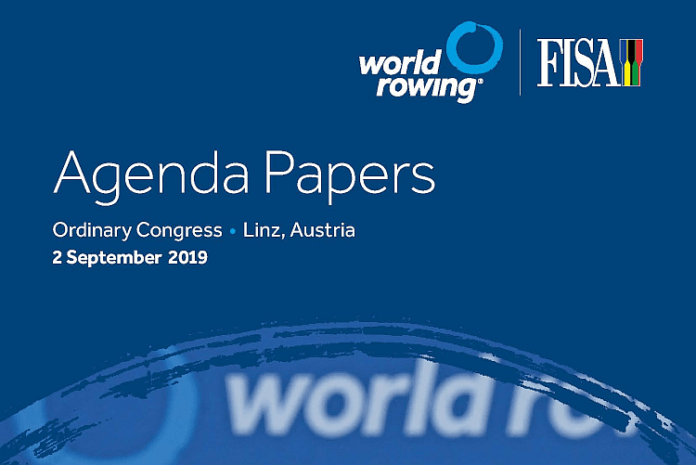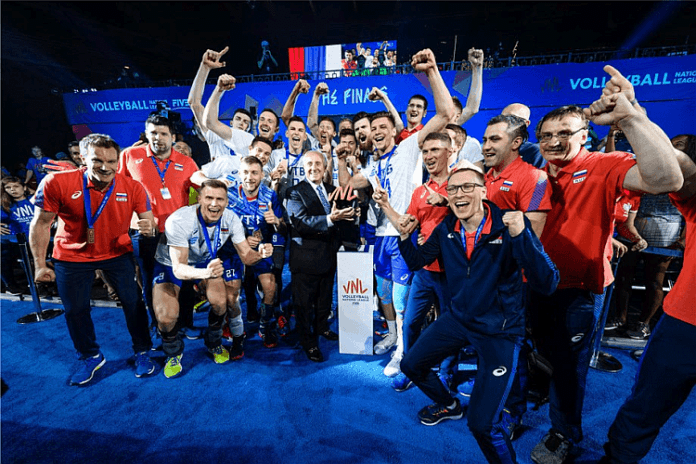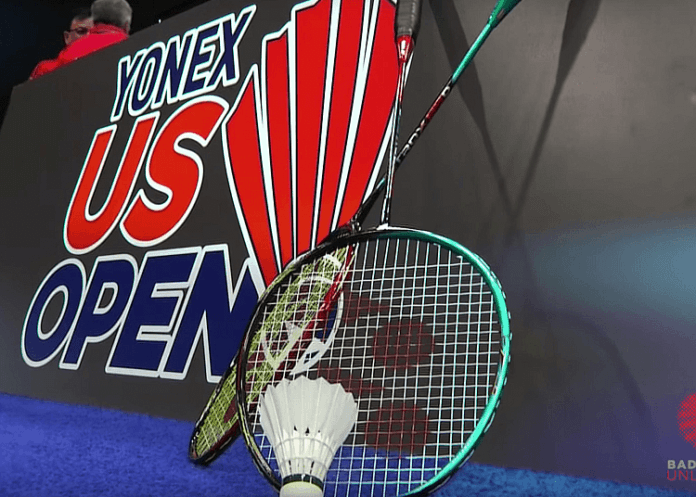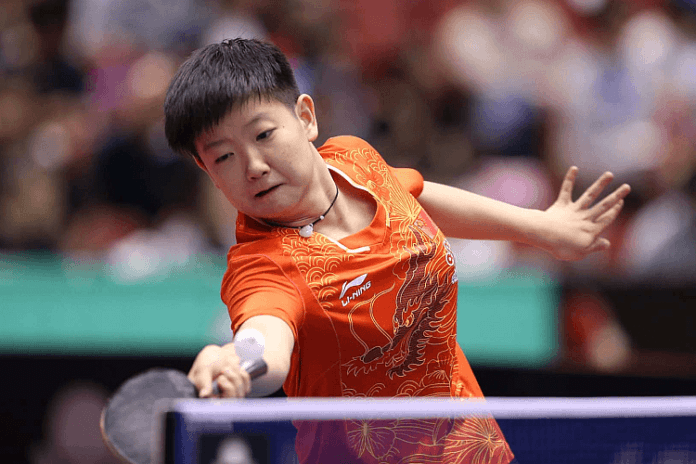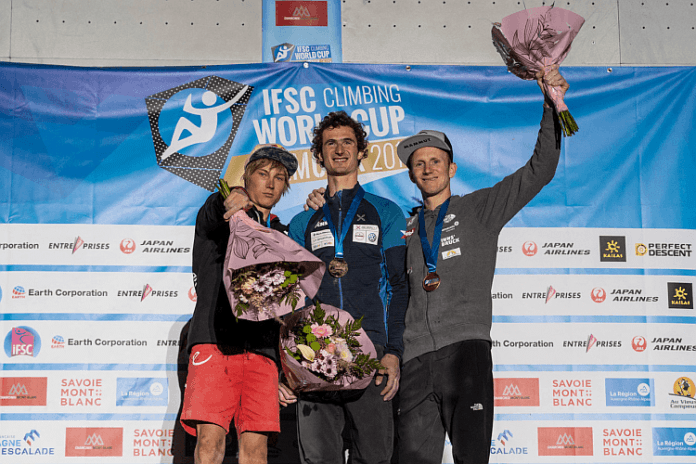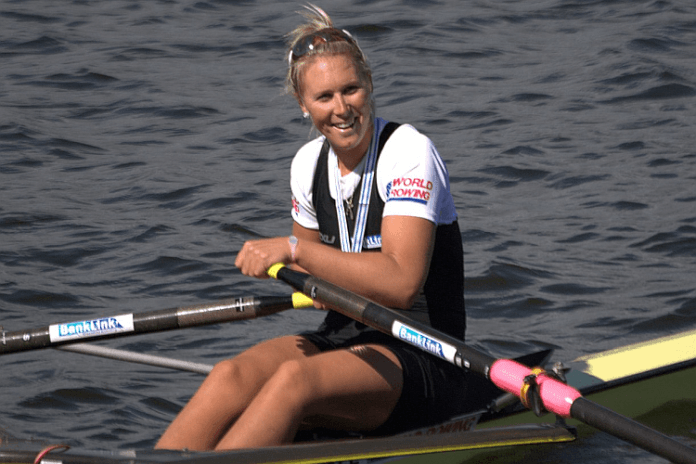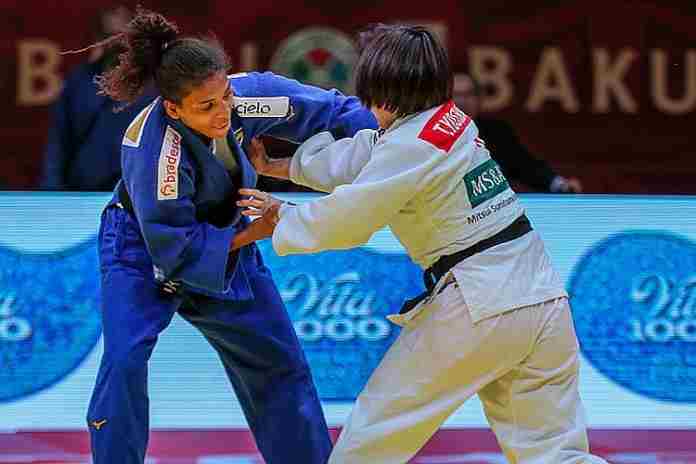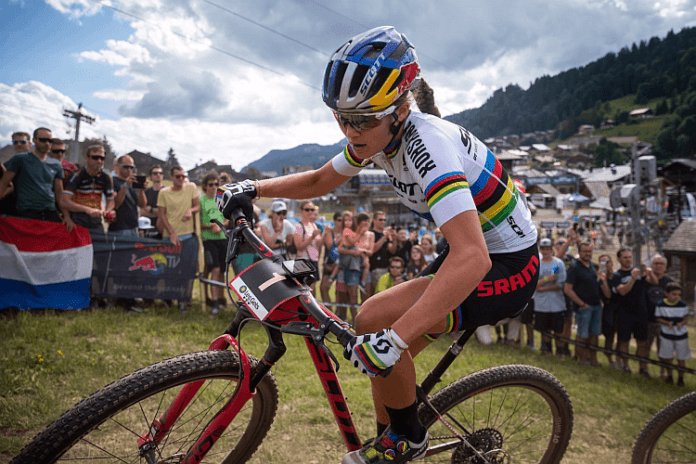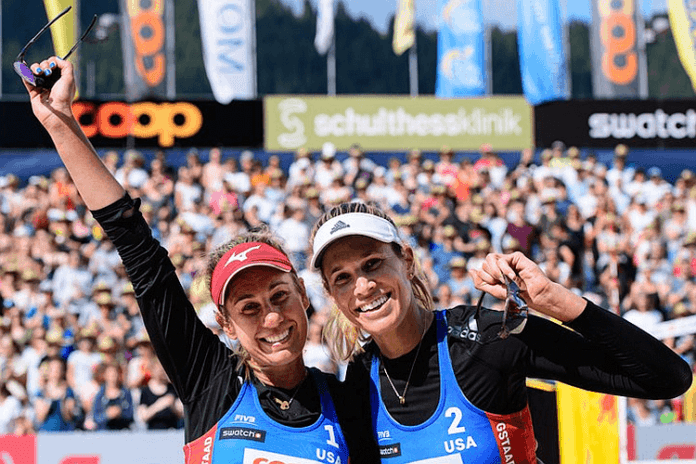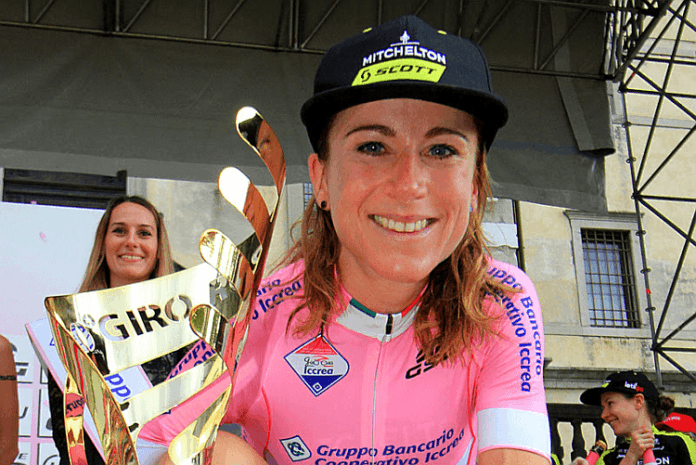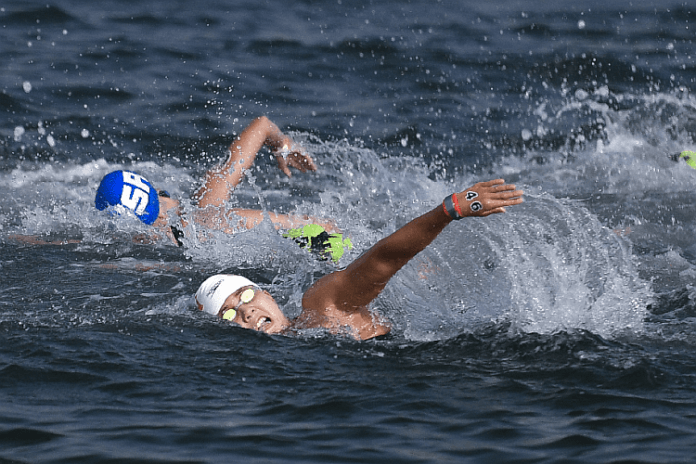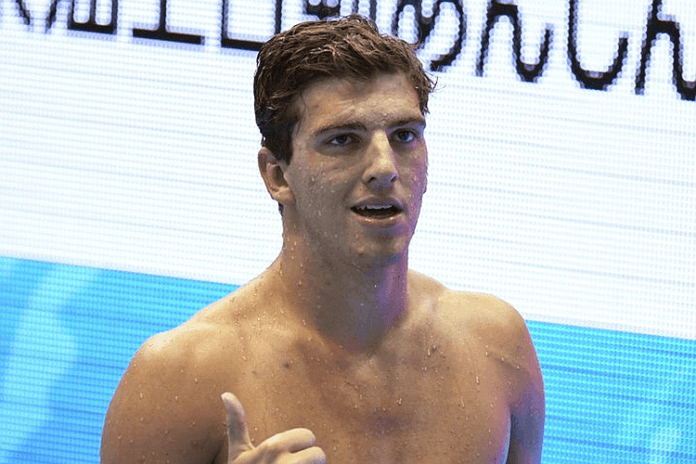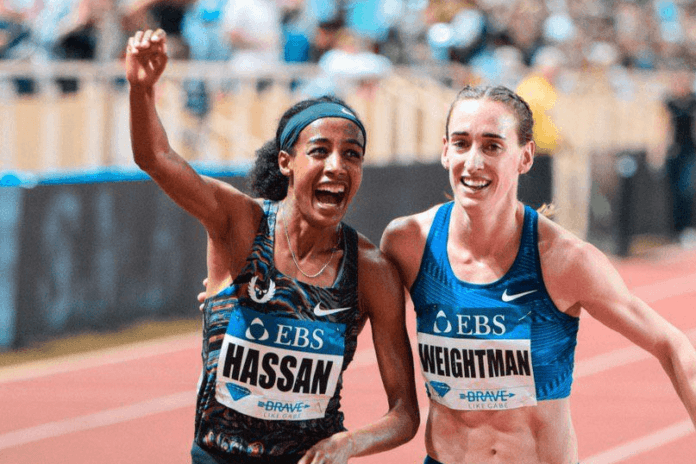A cynic would say that the Artistic Swimming and Diving competitions at the FINA World Championships in Gwangju (KOR) were too lopsided. Others would express admiration for the supreme skill and consistency of the Russians and Chinese.
You can pick which side you prefer after both disciplines concluded on Saturday, with Russia winning nine of 10 events in Artistic and the Chinese winning 12 golds in 13 events in Diving. What about the lone events they didn’t win? They didn’t compete.
In diving, the final-day program included the Mixed 3 m Synchro event at 3:30 p.m. and the men’s 10 m Platform final at 8:45 p.m. In the morning, the Chinese pair of Hao Yang and Yani Chang withdrew from the Mixed event. Said Yang:
“I withdrew from the Mixed 3 m Springboard Synchro to be better prepared in the platform. I thought that worked and helped me a lot. I was satisfied with my performance as I scored 13 perfect marks tonight. It was the first time I competed in the individual event. I was thrilled to experience the breath-taking contest.”
He finished second in a sensational battle with teammate Jian Yang, 25, who took gold with an absurd total of 598.65 points, a World Championships record, including what is reportedly the highest Worlds score ever for a single 10 m dive of 114.80 points on his final effort, a forward 4 1/2 somersault pike, that secured his victory.
That dive had a degree of difficulty of 4.1; no one else in the event tried anything higher than a 3.7!
But Hao Yang has his moments, piling up 15 (not 13) scores of 10.0 on his dives to four for Jian Yang and one for Tom Daley (GBR), and finished second at 585.75, more than 44 points ahead of third-place Aleksandr Bondar (RUS).
There’s no doubt that the Chinese could have won the Mixed 3 m Synchro and had Hao Yang finish second to Jian Yang in the Platform final, but as it was, the Chinese established a new record of 12 golds in the World Diving Championships. China won 8/13 events in 2017, 10/13 in 2015, 9/10 in 2013 and swept all 10 events in 2011. In the 12 events they contested, China’s average margin of victory was 29.60:
● 20.10 ~ Men/1 m Springboard: Zongyuan Wang
● 27.50 ~ Men/3 m Springboard: Siyi Xie (over Yuan Cao/CHN)
● 12.90 ~ Men/10 m Platform: Jian Yang (over Hao Yang/CHN)
● 24.72 ~ Men/3 m Synchro: Siyi Xie/Yuan Cao
● 42.33 ~ Men/10 m Synchro: Yuan Cao/Aisen Chen
● 23.45 ~ Women/1 m Springboard: Yiwen Chen
● 18.15 ~ Women/3 m Springboard: Tingmao Shi (over Han Wang/CHN)
● 61.20 ~ Women/10 m Platform: Yuxi Chen (over Wei Lu/CHN)
● 30.90 ~ Women/3 m Synchro: Han Wang/Tingmao Shi
● 32.52 ~ Women/10 m Synchro: Jiaqi Zhang/Wei Lu
● 34.86 ~ Mixed/10 m Synchro: Junjie Lian/Yajie Si
● 26.60 ~ Mixed/3 m+10 m: Shan Lin/Jian Yang
Looking ahead to the 2020 Tokyo Games, China will be favored to sweep all eight events (no 1 m or Mixed Synchro events) and win eight gold and four silver medals. But things happen; since the Olympic program was expanded to eight events with the Synchro additions in 2000, China has won 5-6-7-6-7 golds, and has not swept a Games yet.
Russia did almost the same thing in Artistic Swimming, winning the nine events it entered and leaving the Team Highlight event to Ukraine. These scores were much closer than in Diving, but it’s important to note the achievements of Svetlana Kolesnichenko and Svetlana Romashina, who won the Solo events individually (one each) and teamed up to win both Duet events. In their careers:
● Kolesnichenko, 25, now has 16 Worlds golds (no silvers, no bronzes) from 2011-19
● Romashina, 29, now has 21 Worlds golds (no silvers, no bronzes) from 2005-19
A combined total of 37 golds is pretty impressive! A repeat performance is certainly possible in 2020, but with only a combined Duet and Team event on the schedule. Kolesnichenko owns an Olympic Team gold from 2016, while Romashina has five Olympic golds from 2008-12-16.
The Artistic, Diving and Open Water events have concluded; Swimming takes over on Sunday and Water Polo is continuing. Summaries:
FINA World Aquatics Championships
Gwangju (KOR) ~ 12-28 July 2019
(Full results here)
ARTISTIC SWIMMING
Solo Technical: 1. Svetlana Kolesnichenko (RUS), 95.0023; 2. Ona Carbonell (ESP), 92.5002; 3. Yukiko Inui (JPN), 92.3084; 4. Marta Fiedina (UKR), 91.3014; 5. Jacqueline Simoneau (CAN), 89.2932; 6. Linda Cerruti (ITA), 88.0378; 7. Evangelia Platanioti (GRE), 86.2921; 8. Vasiliki Alexandri (AUT), 85.6098.
Solo Free: 1. Svetlana Romashina (RUS), 97.1333; 2. Carbonell (ESP), 94.5667; 3. Inui (JPN), 93.2000; 4. Fiedina (UKR), 92.5667; 5. Simoneau (CAN), 90.7000; 6. Cerruti (ITA), 90.4667; 7. Platanioti (GRE), 88.6667; 8. Alexandri (AUT), 87.1667. Also: 12. Anita Alvarez (USA), 84.7333.
Duet Technical: 1. Svetlana Romashina/Svetlana Kolesnichenko (RUS), 95.9010; 2. Wenyan Sun/Xuechen Huang (CHN), 94.0072; 3. Anastasiya Savchuk/Marta Fiedina (UKR), 92.5847; 4. Megumu Yoshida/Yukiko Inui (JPN), 92.116; 5. Linda Cerutti/Costanza Ferro (ITA), 90.1743; 6. Jacqueline Simoneau/Claudia Holzner (CAN), 88.8659; 7. Paula Ramirez/Sara Saldana Lopez (ESP), 87.2960; 8. Eirini Alexandri/Anna-Maria Alexandri (AUT), 87.0654. Also: 12. Ruby Remati/Anita Alvarez (USA), 84.0190.
Duet Free: 1. Romashina/Kolesnichenko (RUS), 97.500; 2. Huang/Sun (CHN), 95.7667; 3. Fiedina/Savchuk (UKR), 94.1000; 4. Inui/Yoshida (JPN), 93.0000; 5. Carbonell/Ramirez (ESP), 91.7000; 6. Cerruti/Ferro (ITA), 91.0000; 7. Holzner/Simoneau (CAN), 89.7667; 8. Charlotte Tremble/Laura Tremble (FRA), 88.0000. Also: 12. Remati/Alvarez (USA), 83.6333.
Team Technical: 1. Russia, 96.9426; 2. China, 95.1543; 3. Ukraine, 93.4514; 4. Japan, 92.7207; 5. Italy, 91.0411; 6. Spain, 90.2506; 7. Canada, 89.4990; 8. Greece, 87.0863. Also: 11. United States, 84.0566.
Team Free: 1. Russia, 98.0000; 2. China, 96.0333; 3. Ukraine, 94.3667; 4. Japan, 93.3667; 5. Italy, 91.6000; 6. Spain, 91.4000; 7. Canada, 90.1000; 8. Greece, 88.3333. Also: 11. United States, 84.4000.
Team Combination: 1. Russia, 98.0000; 2. China, 96.5667; 3. Ukraine, 94.5333; 4. Japan, 92.3333; 5. Italy, 91.4667; 6. Greece, 87.6000; 7. Israel, 83.7667; 8. Brazil, 83.6333.
Team Highlight: 1. Ukraine, 94.5000; 2. Italy. 91.7333; 3. Spain, 91.1333; 4. Canada, 89.3333; 5. France, 87.2000; 6. Israel, 83.7000 7. Hungary. 77.5667; 8. Thailand, 71.1333.
Mixed Duet Technical: 1. Mayya Gurbanberdieva/Aleksandr Maltsev (RUS), 92.0749; 2. Manila Flamini/Giorgio Minisini (ITA), 90.8511; 3. Atsushi Abe/Yumi Adachi (JPN), 88.5113; 4. Bill May/Natalia Vega Figueroa (USA), 86.9235; 5. Haoyu Shi/Yayi Zhang (CHN), 85.5881; 6. Pau Ribes/Emma Garcia (ESP), 84.4015; 7. Renan Souza/Giovana Stephan (BRA), 79.4495; 8. Jennifer Cerquera Hatiusca/Gustavo Sanchez (COL), 77.5388.
Mixed Duet Free: 1. Gurbanberdieva/Maltsev (RUS), 92.9667; 2. Flamini/Minisini (ITA), 91.8333; 3. Abe/Adachi (JPN), 90.4000; 4. May/Vega Figueroa (USA), 88.3000; 5. Garcia/Ribes (ESP), 86.3667; 6. Wentao Cheng/Haoyu Shi (CHN), 85.6667; 7. Cerquera Hatiusca/Sanchez (COL), 78.7000; 8. Dinara Ibragimova/Vyacheslav Rudnev (UZB), 74.4333.
DIVING
Men
1 m Springboard: 1. Zongyuan Wang (CHN), 440.25; 2. Rommel Pacheco (MEX), 420.15; 3. Jianfeng Peng (CHN), 415.00; 4. Haram Woo (KOR), 406.15; 5. Patrick Hausding (GER), 405.05; 6. Briadam Herrera (USA), 399.90; 7. Oleg Kolodiy (UKR), 396.40; 8. Kacper Lesiak (POL), 380.05.
3 m Springboard: 1. Siyi Xie (CHN), 545.45; 2. Yuan Cao (CHN), 517.95; 3. Jack Laugher (GBR), 504.55; 4. Haram Woo (KOR), 478.80; 5. David Boudia (USA), 458.10; 6. Patrick Hausding (GER), 452.25; 7. Mike Hixon (USA), 449.95; 8. Rommel Pacheco (MEX), 443.30.
10 m Platform: 1. Jian Yang (CHN), 598.65; 2. Hao Yang (CHN), 585.75; 3. Aleksandr Bondar (RUS), 541.05; 4. Oleksii Sereda (UKR), 490.50; 5. Benjamin Auffret (FRA), 489.20; 6. Haram Woo (KOR), 477.25; 7. Tom Daley (GBR), 470.35; 8. Brandon Loschiavo (USA), 470.10. Also: 12. David Dinsmore (USA), 438.15.
3 m Synchro: 1. Siyi Xie/Yuan Cao (CHN), 439.74; 2. Jack Laugher/Daniel Goodfellow (GBR), 415.02; 3. Juan Celaya/Yahei Castillo (MEX), 413.94; 4. Lars Rudiger/Patrick Hausding (GER), 399.87; 5. Nikita Shleikher/Evgenii Kuznetsov (RUS), 396.81; 6. Oleksandr Gorshkovozov/Oleg Kolodiy (UKR), 393.24; 7. Sho Sakai/Ken Terauchi (JPN), 389.43; 8. Andrew Capobianco/Mike Hixon (USA), 388.08.
10 m Synchro: 1. Yuan Cao/Aisen Chen (CHN), 486.93; 2. Viktor Minibaev/Aleksandr Bondar (RUS), 444.60; 3. Tom Daley/Matty Lee (GBR), 425.91; 4. Oleksii Sereda/Oleh Serbin (UKR), 412.62; 5. Domonic Bedggood/Declan Stacey (AUS), 411.24; 6. Yeongnam Kim/Haram Woo (KOR), 401.67; 7. Kevin Berlin Reyes/Ivan Garcia (MEX), 400.71; 8. Benjamin Bramley/Steele Johnson (USA), 383.79.
Women
1 m Springboard: 1. Yiwen Chen (CHN), 285.45; 2. Sarah Bacon (USA), 262.00; 3. Suji Kim (KOR), 257.20; 4. Katherine Torrance (GBR), 255.40; 5. Kristina Ilinykh (RUS), 252.80; 6. Yani Chang (CHN), 251.95; 7. Elena Bertocchi (ITA), 245.60; 8. Elizabeth Cui (NZL), 244.20. Also: 10. Maria Coburn (USA), 237.75.
3 m Springboard: 1. Tingmao Shi (CHN), 391.00; 2. Han Wang (CHN), 372.85; 3. Maddison Keeney (AUS), 367.05; 4. Jennifer Abel (CAN), 333.35; 5. Sayaka Mikami (JPN), 323.05; 6. Esther Qin (AUS), 302.85; 7. Pam Ware (CAN), 290.20; 8. Grace Reid (GBR), 286.95.
10 m Platform: 1. Yuxi Chen (CHN), 439.00; 2. Wei Lu (CHN), 377.80; 3. Delaney Schnell (USA), 364.20; 4. Melissa Wu (AUS), 360.20; 5. Pandelela Pamg (MAS), 349.25; 6. Meaghan Benfeito (CAN), 347.80; 7. Caeli McKay (CAN), 331.40; 8. Noemi Batki (ITA), 328.90. Also: 11. Amelia Magana (USA), 305.00.
3 m Synchro: 1. Han Wang/Tingmao Shi (CHN), 342.00; 2. Melissa Citrini Beaulieu/Jennifer Abel (CAN), 311.10; 3. Paola Espinosa/Melany Hernandez (MEX), 294.90; 4. Kristina Ilinykh/Mariia Poliakova (RUS), 292.80; 5. Grace Reid/Katherine Torrance (GBR), 289.80; 6. Annabelle Smith/Maddison Keeney (AUS), 278.13; 7. Celine Van Duijin/Inge Jensen (NED), 277.50; 8. Yan Yee Ng/Nur Dhabitah Sabri (MAS), 277.35. Also: 10. Krysta Palmer/Alison Gibson (USA), 274.47.
10 m Synchro: 1. Jiaqi Zhang/Wei Lu (CHN), 345.24; 2. Mun Yee Leong/Pandelela Pamg (MAS), 312.72; 3. Murphy Bromberg/Katrina Young (USA), 304.86; 4. Meaghan Benfeito/Caeli McKay (CAN), 304.05; 5. Iullia Timoshinina/Ekaterina Beliaeva (RUS), 291.30; 6. Lois Toulson/Eden Cheng (GBR), 289.14; 7. Chiara Pellacani/Noemi Batki (ITA), 280.38; 8. Melissa Wu/Emily Chinnock (AUS), 277.44.
Mixed
3 m Synchro: 1. Matthew Carter/Maddison Keeney (AUS), 304.86; 2. Francois Imbeau-Dulac/Jennifer Abel (CAN), 304.08; 3. Lou Massenberg/Tina Punzel (GER), 301.62; 4. Tom Daley/Grace Reid (GBR), 298.47; 5. Briadam Herrera/Maria Coburn (USA), 295.95; 6. Osmar Olvera/Dolores Hernandez (MEX), 288.30; 7. Stanislav Oliferchyk/Viktoriya Kesar (UKR), 282.84; 8. Sebastian Villa Castenada/Diana Pineda (COL), 279.87.
10 m Synchro: 1. Junjie Lian/Yajie Si (CHN), 346.14; 2. Ekaterina Beliaeva/Viktor Minibaev (RUS), 311.28; 3. Maria Sanchez/Jose Balleza (MEX), 287.64; 4. Noah Williams/Robyn Birch (GBR), 285.18; 5. Olivia Rosendahl/Zach Cooper (USA), 267.96; 6. Maicol Verzotto/Noemi Batki (ITA), 259.62; 7. Jiwook Kim/Halim Kwon (KOR), 247.20; 8. Ingrid Oliveira/Isaac Filho (BRA), 239.46.
3 m & 10 m: 1. Shan Lin/Jian Yang (CHN), 416.65; 2. Iullia Timoshinina/Sergey Nazin (RUS), 390.05; 3. Andrew Capobianco/Katrina Young (USA), 357.0; 4. Mun Yee Leong/Yiwei Chew (MAS), 347.80; 5. Laura Hingston/Cassiel Rousseau (AUS), 329.30; 6. Ross Haslam/Eden Chang (GBR), 327.90; 7. Sebastian Villa Castenada/Diana Pineda (COL), 325.40; 8. Lars Rudiger/Maria Kurjo (GER), 324.50.
OPEN WATER SWIMMING
Men
5 km: 1. Kristof Rasovszky (HUN), 53:22.10; 2. Logan Fontaine (FRA), 53:32.20; 3. Eric Hedlin (CAN), 53:32.40; 4. Matej Kozubek (CZE), 53:33.60; 5. Domenico Acerenza (ITA), 53:34.00; 6. Daniel Szekelyi (HUN), 5:34.40; 7. Bailey Armstrong (AUS), 53:34.80; 8. Kirill Abrosimov (RUS), 53:35.50. Also: 14. Brennan Gravley (USA), 53:37.80
10 km: 1. Florian Wellbrock (GER), 1:47:55.90; 2. Marc-Antoine Olivier (FRA), 1:47:56.10; 3. Rob Muffels (GER), 1:47:57.40; 4. Rasovszky (HUN), 1:47:59.50; 5. Jordan Wilimovsky (USA), 1:48:01.00; 6. Gregorio Paltrinieri (ITA), 1:48:01.00; 7. Ferry Weertman (NED), 1:48:01.90; 8. Alberto Martinez (ESP), 1:48:02.20. Also: 25. David Heron (USA), 1:49:57.60.
25 km: 1. Axel Reymond (FRA), 4:51:06.2; 2. Kirill Belyaev (RUS), 4:51:06.5; 3. Alessio Occhipinti (ITA), 4:51:09.5; 4. Simone Ruffini (ITA), 4:51:14.9; 5. Kai Edwards (AUS), 4:51:17.2; 6. Evgenii Drattcev (RUS), 4:51:19.6; 7. Alberto Martinez (ESP), 4:51:44.1; 8. Andreas Waschburger (GER), 4:52:26.3. Also: 14. Heron (USA), 4:55:11.8; 15. Gravley (USA), 4:57:17.5.
Women
5 km: 1. Ana Marcela Cunha (BRA), 57:56.0; 2. Aurelie Muller (FRA), 57:57.0; 3. tie, Hannah Moore (USA) and Leonie Beck (GER), 57:58.0; 5. Rachele Bruni (ITA), 57:58.7; 6. Giulia Gabbrielleschi (ITA), 57:59.0; 7. Ashley Twichell (USA), 58:00.0; 8. Yawen Hou (CHN), 58:00.9.
10 km: 1. Xin Xin (CHN), 1:54:47.20; 2. Haley Anderson (USA), 1:54:48.10; 3. Bruni (ITA), 1:54:49.90; 4. Lara Grangeon (FRA), 1:54:50.00; 5. Cunha (BRA), 1:54:50.50; 6. Twichell (USA), 1:54:50.50; 7. Kareena Lee (AUS), 1:54:50.50; 8. Finnia Wunram (GER), 1:54:50.70.
25 km: 1. Cunha (BRA), 5:08:03.0; 2. Wunram (GER), 5:08:11.6; 3. Lara Grangeon (FRA), 5:08:21.2; 4. Lisa Pou (FRA), 5:08:28.4; 5. Erica Sullivan (USA), 5:11:23.2; 6. Anna Olasz (HUN), 5:11:51.5; 7. Arianna Bridi (ITA), 5:11:52.6; 8. Onon Somenek (HUN), 5:11:54.7. Also: 9. Katy Campbell (USA), 5:11:59.6.
Mixed
5 km Relay: 1. Germany, 53:58.7; 2. Italy, 53:58.9; 3. United States (Haley Anderson, Jordan Wilimovsky, Ashley Twichell, Michael Brinegar), 53:59.0; 4. Brazil, 54:24.5; 5. Australia, 54:36.8; 6. France, 54:37.1; 7. Netherlands, 54:37.2; 8. Hungary, 55:02.7.








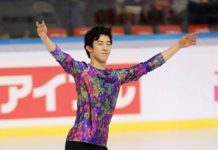

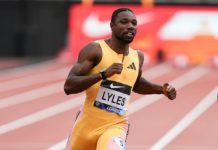


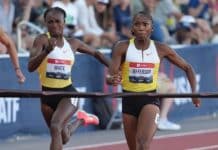


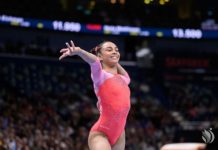
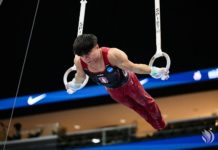
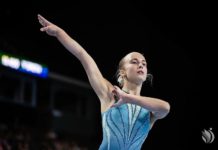
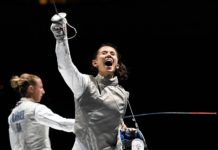
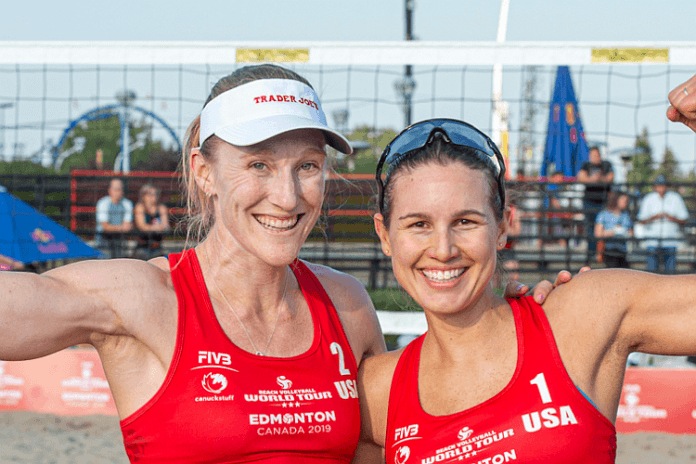
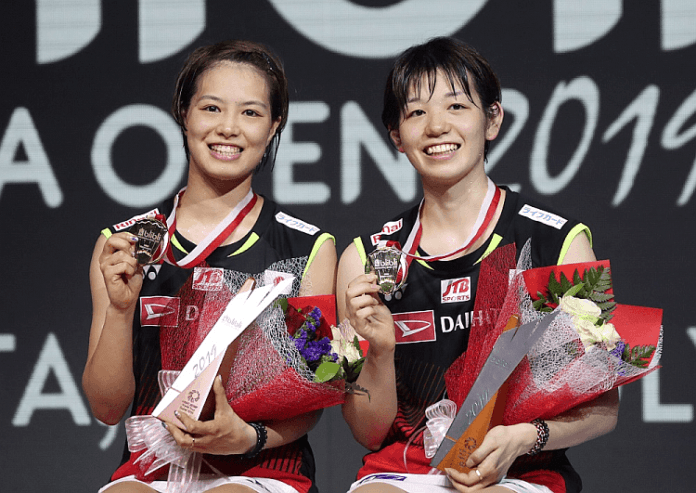
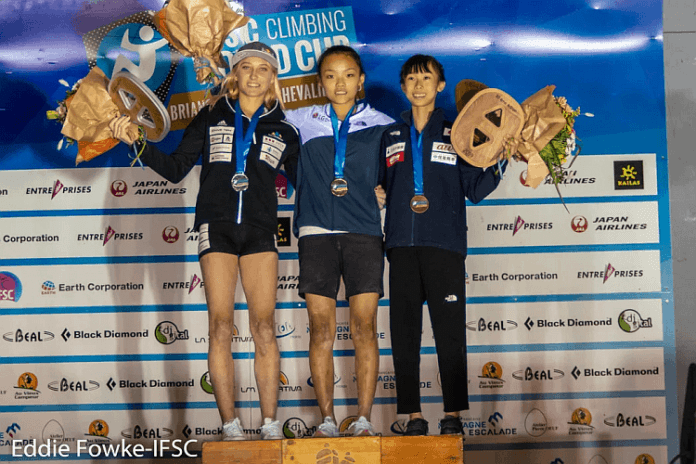
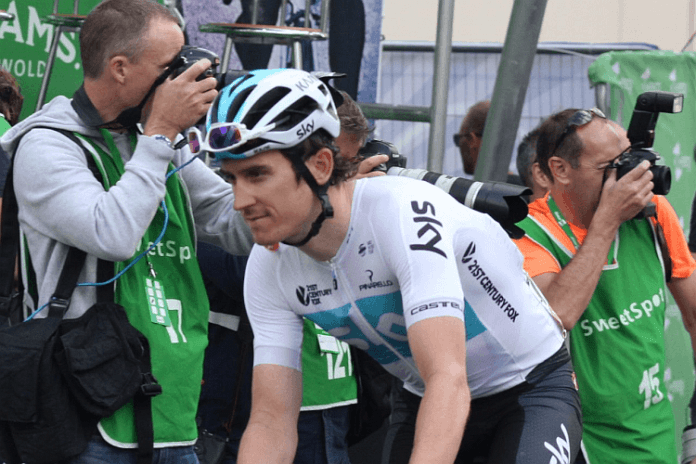
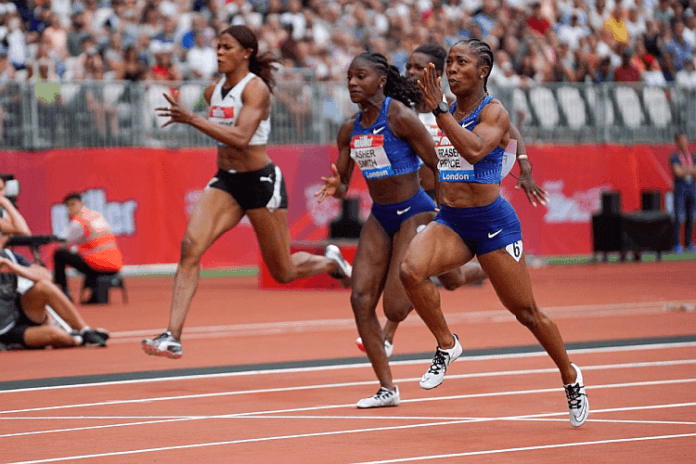
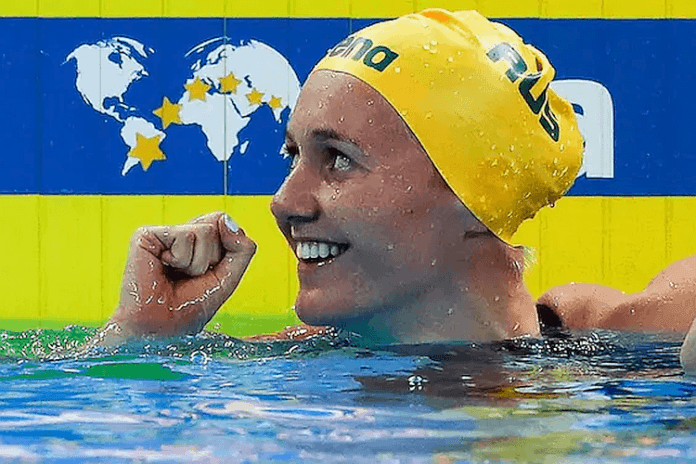
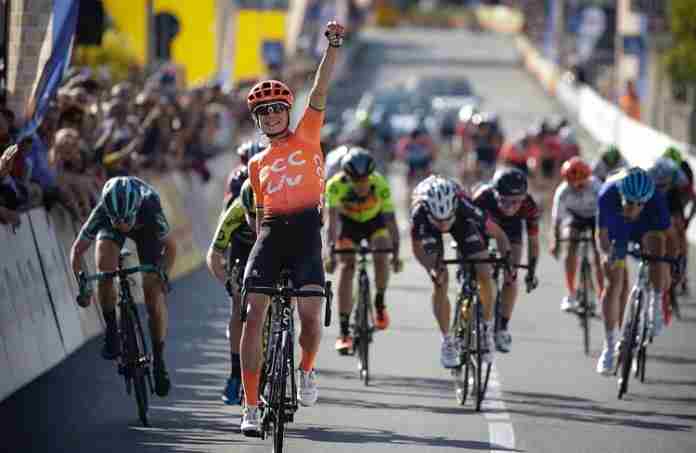
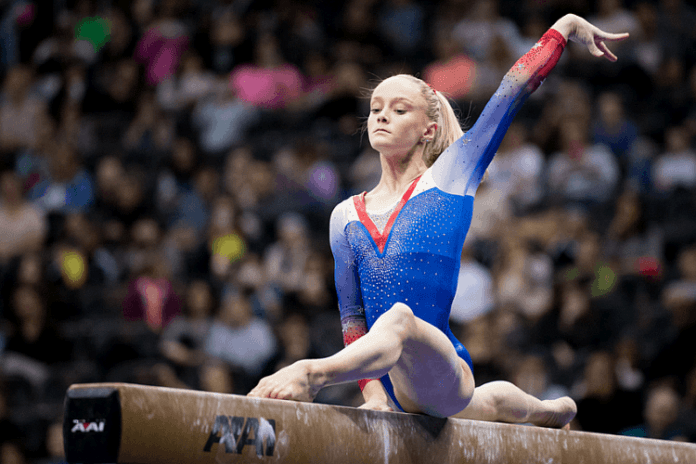
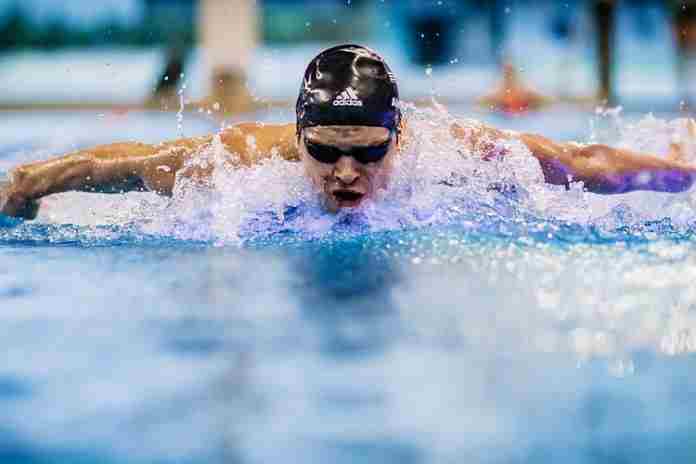
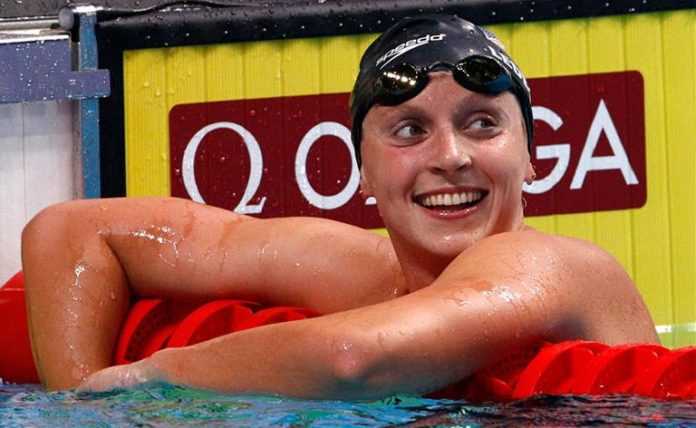
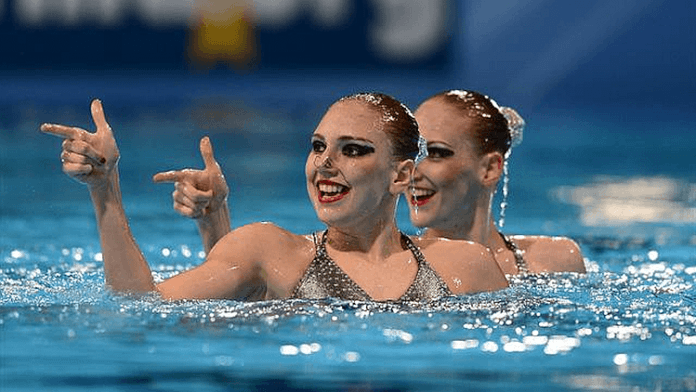
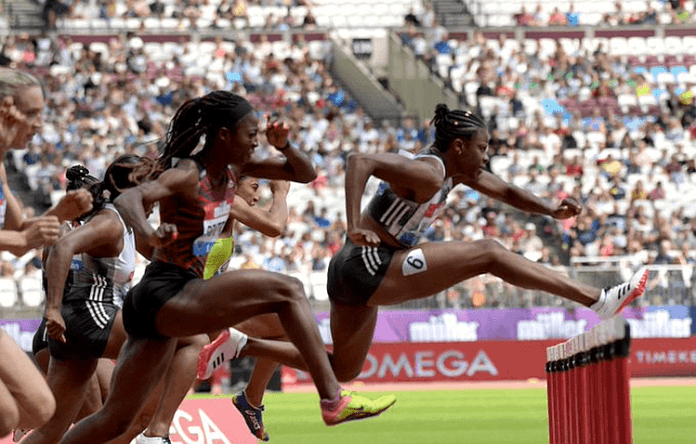
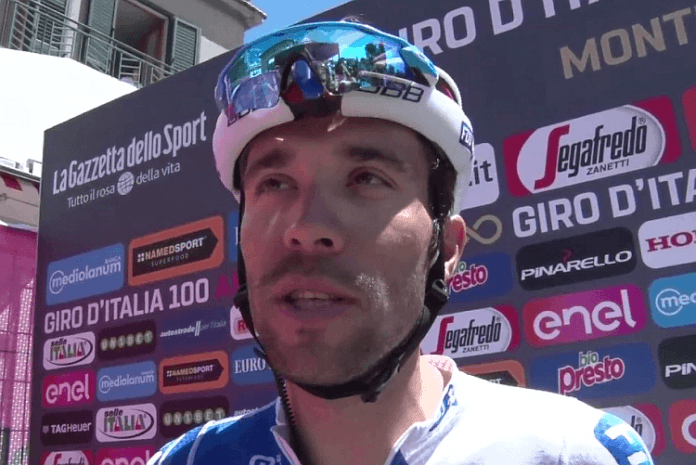
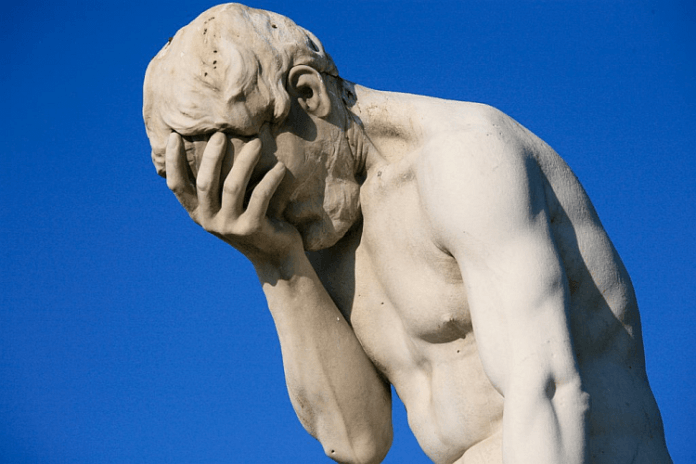
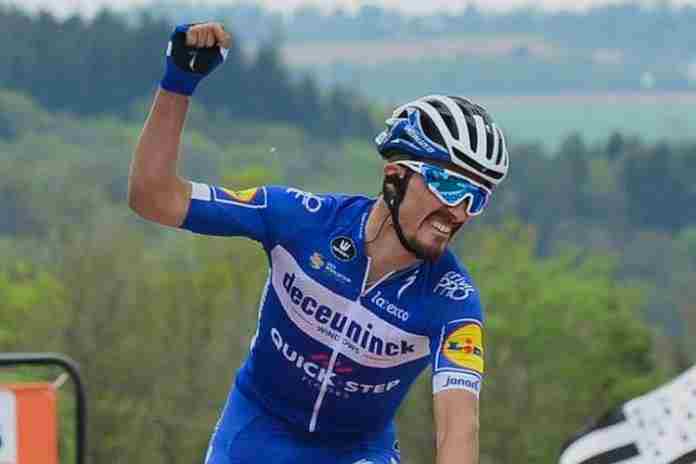
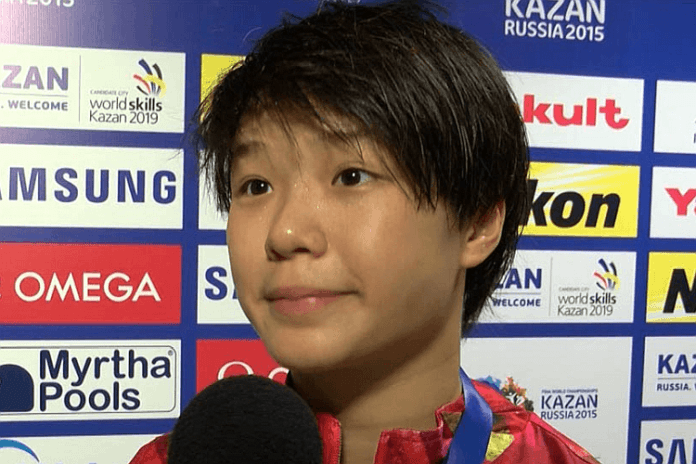
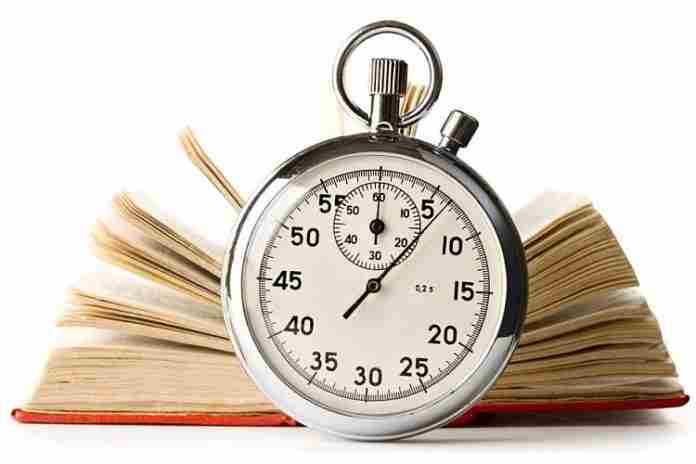
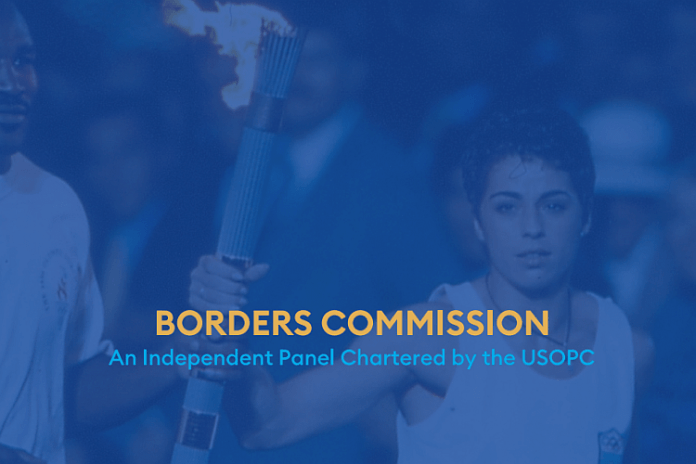
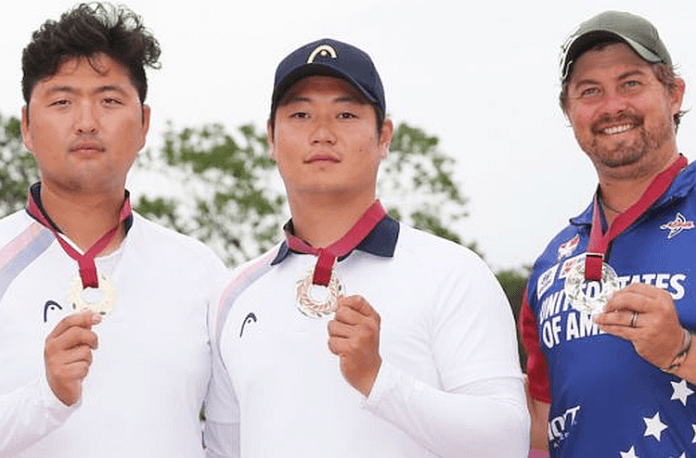
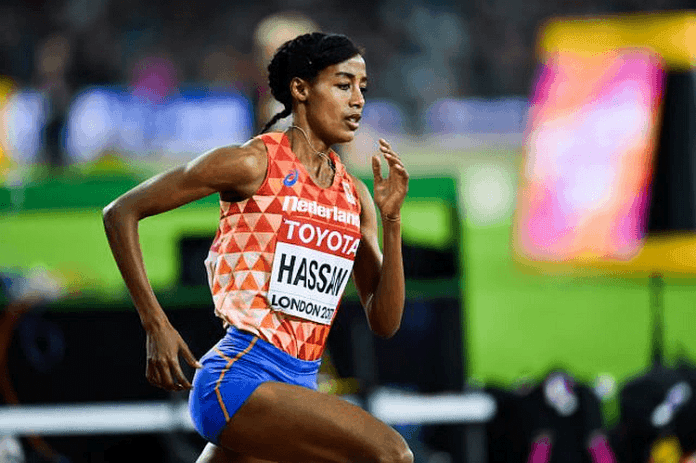

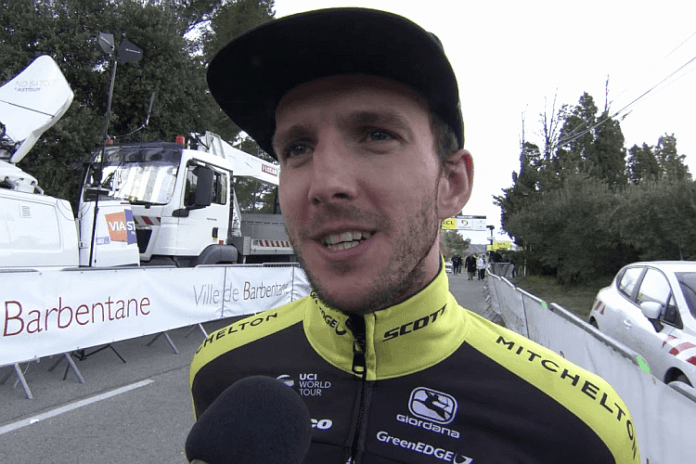
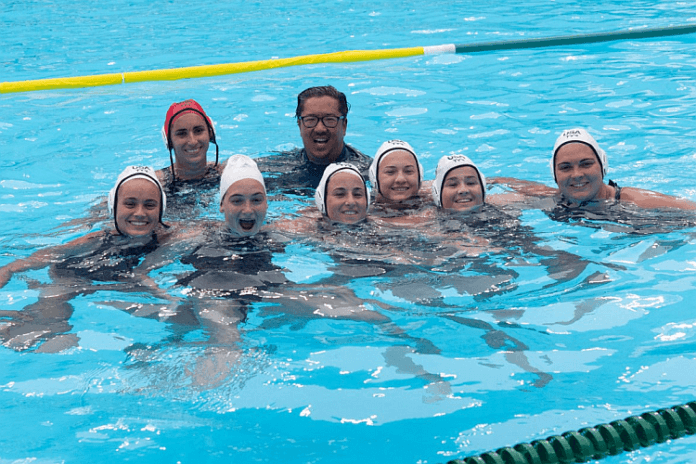
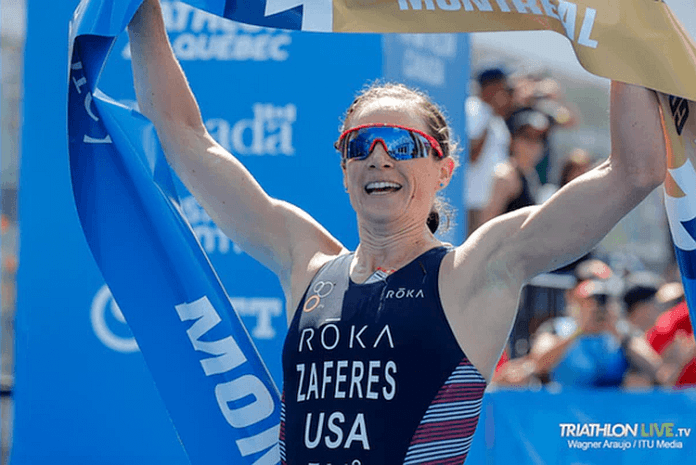
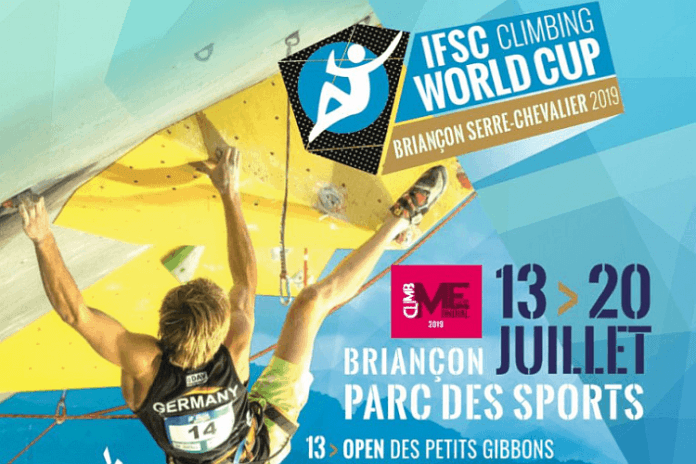
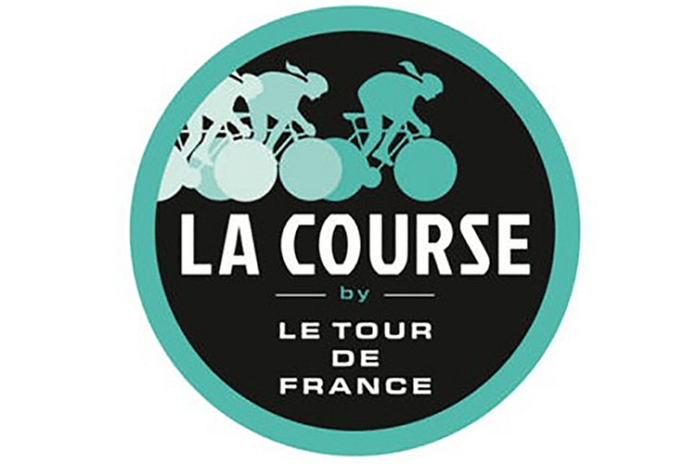
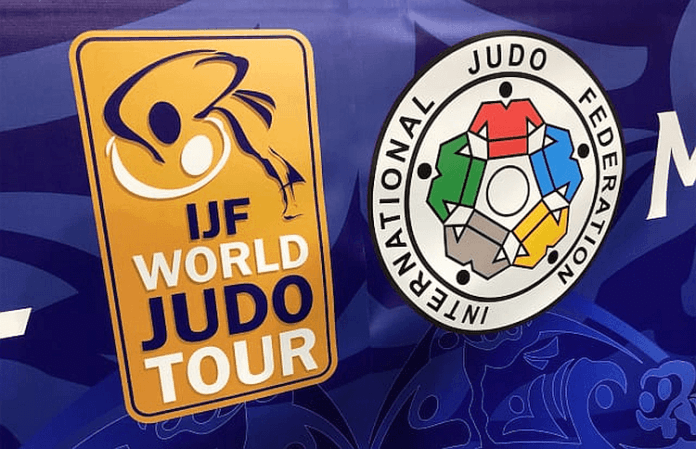
 The International Judo Federation has a reputation for efficiency and thoroughness, both traits endemic to that sport.
The International Judo Federation has a reputation for efficiency and thoroughness, both traits endemic to that sport.